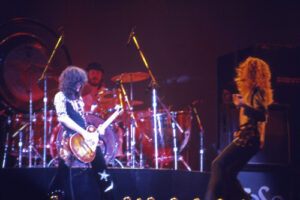
Feature Photo: ABC Records, Public domain, via Wikimedia Commons
The music world has lost a man whose fingerprints are all over rock history, even if his name was never shouted from the rooftops as loudly as it should have been. Bobby Whitlock was more than a sideman. He was the soul in the room, the man who could sit down at a Hammond organ or behind a piano and instantly change the color of a song. When he passed away on August 10 at the age of seventy-seven, we didn’t just lose a musician. We lost one of those rare players who could make music feel both intimate and monumental in the same breath. His manager confirmed that he died peacefully at his home in Texas after a brief illness, surrounded by family.
Whitlock’s story begins in Memphis, Tennessee, a city whose rich blend of gospel, blues, and soul poured into him from the very start. His earliest break came with Stax Records, where he became the first white artist ever signed to the legendary label. That alone was historic, but what mattered more was the music he made there. He played on sessions for Booker T. & the M.G.’s, Sam & Dave, and other Stax heavyweights, absorbing the deep groove and emotional honesty that would define his style for the rest of his career.
In the late 1960s, Whitlock joined Delaney & Bonnie and Friends, a revolving door of gifted musicians who blurred the lines between rock, soul, and country. On those tours he met Eric Clapton, bassist Carl Radle, and drummer Jim Gordon. The four of them would go on to form Derek and the Dominos in 1970, a band whose one studio album, Layla and Other Assorted Love Songs, has become one of the defining records of the era. Whitlock co-wrote seven of its tracks, including “Bell Bottom Blues,” “Anyday,” “Why Does Love Got to Be So Sad,” and “Tell the Truth.” His organ swells, gospel shouts, and songwriting instincts helped give the album its emotional core.
When the Dominos fell apart during the making of their second record, Whitlock’s talent didn’t go quiet. He played on George Harrison’s All Things Must Pass, including “My Sweet Lord” and “What Is Life.” He was part of The Rolling Stones’ Exile on Main St. sessions, though uncredited. He appeared on Dr. John’s The Sun, Moon & Herbs and a long list of other projects where his touch was subtle but unmistakable.
His solo career began in 1972 with a self-titled debut featuring appearances from Clapton, Harrison, and Radle. Later that year he followed with Raw Velvet, and in the years that followed he released One of a Kind and Rock Your Sox Off. The records didn’t chase trends. They reflected the same soulful blend of rock, blues, and R&B that had shaped him since Memphis. By the end of the 1970s, Whitlock stepped away from the industry, content to live outside the machinery of fame.
Two decades later, he reemerged with the 1999 album It’s About Time, the start of a new creative chapter alongside his wife, CoCo Carmel. Together they recorded and toured, breathing new life into Derek and the Dominos songs and writing fresh material. Albums like Other Assorted Love Songs and 2012’s Esoteric proved that Whitlock’s voice—both as a singer and a songwriter—had lost none of its power.
Whitlock was also an accomplished painter, channeling his creative energy into visual art that was displayed in galleries. In 2024, Memphis paid tribute to his life and career by inducting him into the Beale Street Walk of Fame, honoring his contributions to the city’s musical legacy.
Bobby Whitlock is survived by his wife, CoCo Carmel, and his three children, Ashley Brown, Beau Whitlock, and Tim Whitlock Kelly. His career may have been marked by moments in the shadows, but for those who listened closely, his presence was undeniable. He was the kind of musician who made the music better just by being there.
Check out similar articles on ClassicRockHistory.com Just click on any of the links below……
Top 10 Derek And The Dominos Songs And History Of The Band
Read More: Artists’ Interviews Directory At ClassicRockHistory.com
Read More: Classic Rock Bands List And Directory


































